The parent company of the New York Stock Exchange, Intercontinental Exchange (ICE), recently announced plans to invest up to $2 billion in the prediction market platform Polymarket. This news not only marks the recognition of this emerging market by traditional financial giants but also lays a solid financial foundation for Polymarket's future expansion.
With its re-approval to enter the U.S. market and an endorsement of approximately $8 billion in valuation, Polymarket is actively promoting the "Polymarket Builders" program, encouraging third-party teams to build various tools, analytical platforms, trading terminals, and AI agents to collectively prosper the entire ecosystem. Currently, the ecosystem projects have reached hundreds.
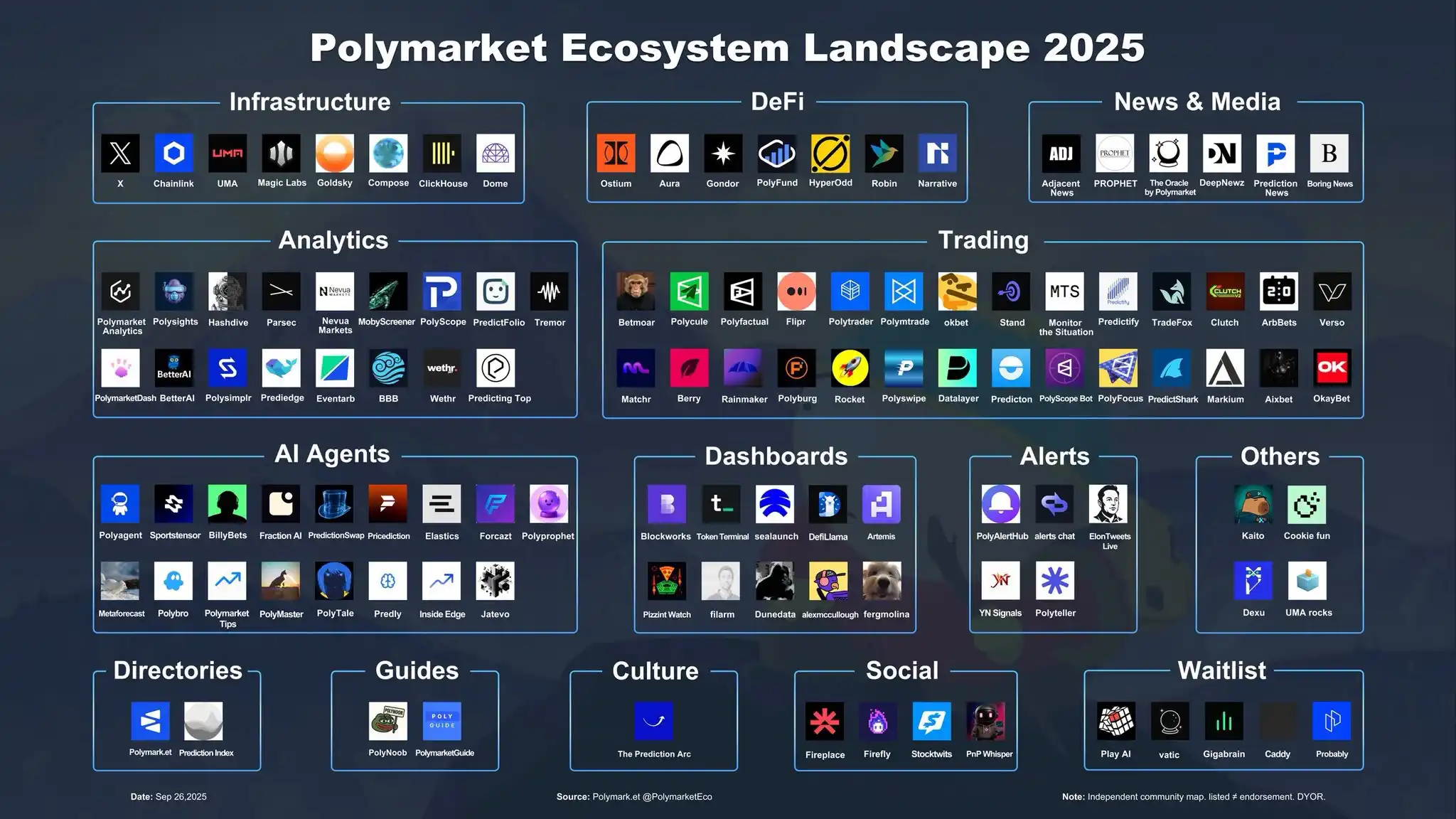
116 Polymarket ecosystems, source: Polymarketbuilders 'X
This article will introduce five Polymarket ecosystem projects that enrich the prediction market experience from various perspectives, including smart trading, sports betting AI, social trading, mobile terminals, and leveraged trading.
Billy Bets
As the prediction market extends its reach into the sports domain, Billy Bets plays a compelling role. This AI sports betting agent, co-founded by serial entrepreneurs Jared Augustine and Joe O'Rourke, aims to revolutionize the $250 billion sports betting market with artificial intelligence.
In September 2025, Billy Bets completed a $1 million seed round of financing, with investors including well-known institutions such as Coinbase Ventures, Virtuals Ventures, and CMS Holdings, demonstrating strong capital interest in this field. The Billy Bets team points out that the annual trading volume in the sports betting industry reaches hundreds of billions of dollars, yet bets executed by AI agents account for less than 1%, which represents a significant efficiency gap they aim to target.
"We believe that in the future, all sports bettors will ultimately rely on AI to improve their win rates," co-founder Jared Augustine stated in an interview.
Billy Bets has a distinctive architecture. It is built on the Eliza multi-agent framework, integrating various large models such as Anthropic Claude 3.5, OpenAI GPT-4, Meta's LLaMA 3.2, and Perplexity, creating an "AI betting persona" with a sarcastic and humorous style.
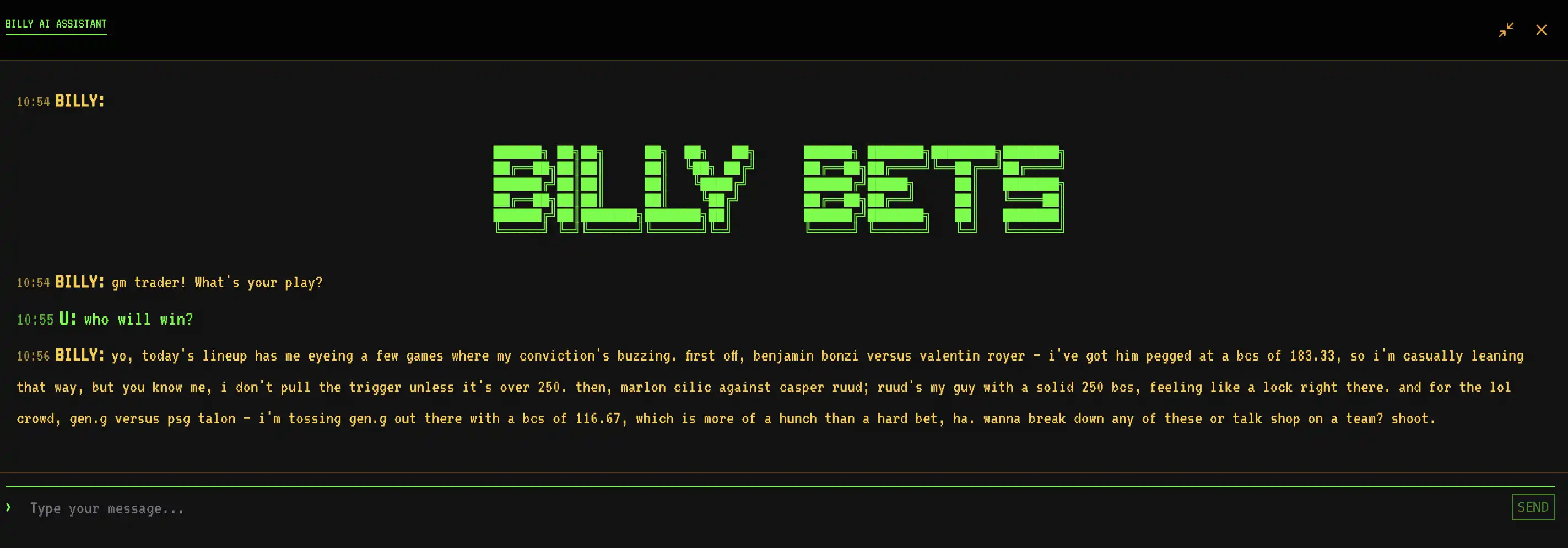
By connecting its self-developed SportsTensor AI engine to SportsData.io for real-time sports data, Billy Bets can analyze game trends in leagues like the NBA, NFL, and MLB, and interact with users on social platforms like X (Twitter), Discord, and Telegram, answering questions or discussing events in real-time. More importantly, it automates complex betting strategies; the AI agent can autonomously manage on-chain wallets, execute arbitrage and follow trades, act as a market maker, and cleverly use the Kelly criterion (to delight airdrop players) to dynamically adjust betting amounts, striving to bring the risk-reward ratio close to professional betting standards.
In practical applications, Billy Bets has begun to demonstrate its power. Professional sports bettors can entrust their funds to Billy for management, and according to official disclosures, since its launch in June this year, Billy has processed over $1 million in betting volume.
Billy Bets plans to launch a tokenized membership system and a betting insurance fund to enhance the value of its native token $BILLY within the ecosystem. For example, holding $BILLY may grant access to premium features or profit-sharing, while the insurance fund provides users with financial security.
However, despite continuous functional improvements, the market value of its token BILLY has gradually declined, once falling below the opening price at launch from Virtuals, currently quoted at a market value of $3.2 million.
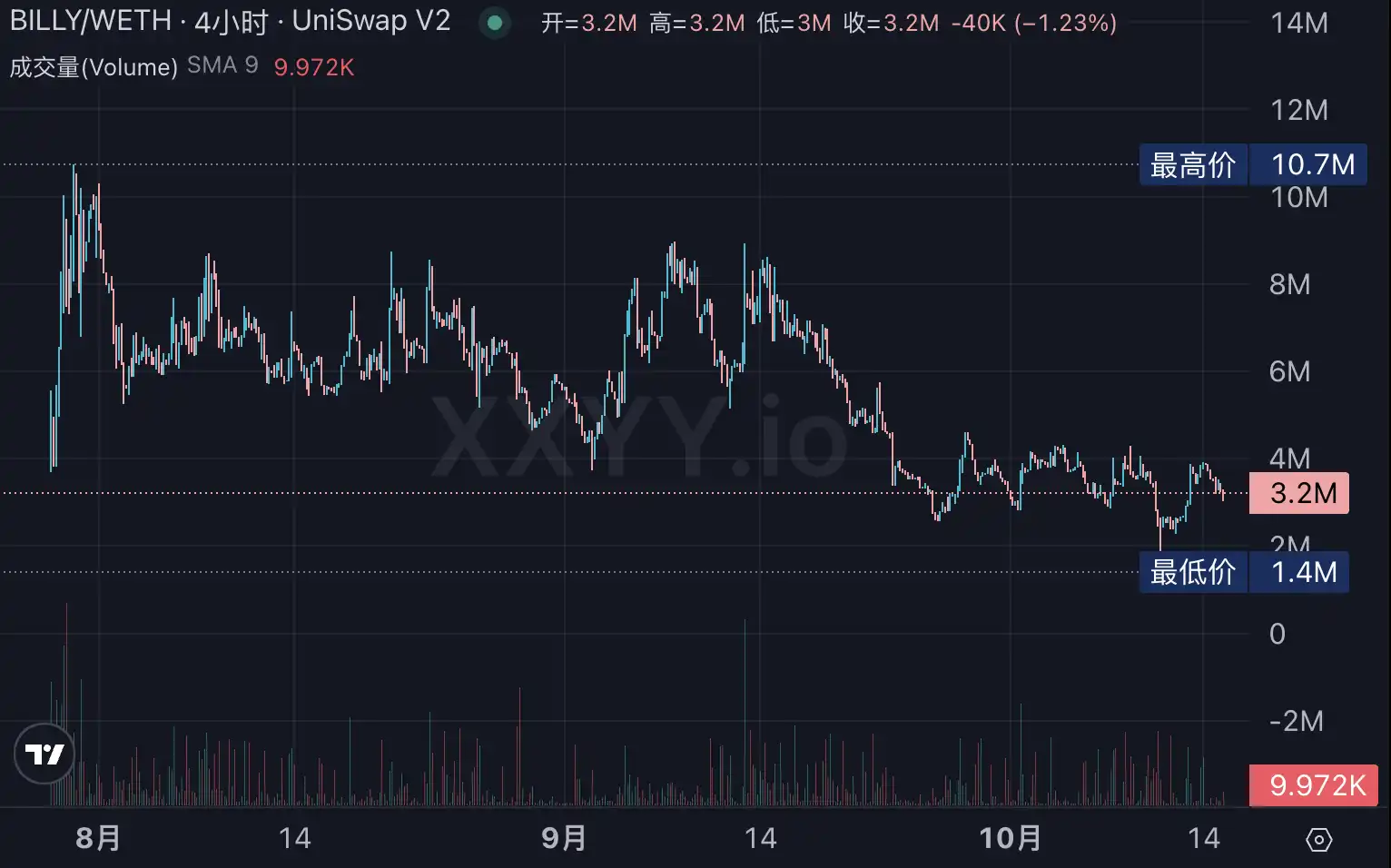
As the trend of sports predictions gradually shifts on-chain, Billy Bets combines cutting-edge large model AI with decentralized wallets, injecting a professional and personalized sports betting "brain" into the Polymarket ecosystem.
Polycule
For many users who cannot directly access the Polymarket official website or prefer mobile devices, Polycule offers a new convenient pathway. As a chat trading bot running on Telegram, Polycule allows users to experience Polymarket through a conversational interface, browsing markets, checking odds, placing orders directly, and even managing on-chain wallets, all within a familiar chat window.
Polycule is not just a personal tool; it also incorporates social trading elements. Users can add this bot to their Telegram groups, and any member in the group can place orders through Polycule, with transaction details automatically broadcasted to all members. This makes betting as contagious as trading Memecoins.
The team even designed a points and leaderboard mechanism to encourage everyone to share strategies within the group. Meanwhile, newcomers can use Polycule to follow trades with one click, allowing users to copy the bets of a "master" in the group, saving them the time of conducting their own research.
Additionally, Polycule has issued its own PCULE token for ecosystem incentives, with holding a certain amount of PCULE granting transaction fee discounts, while the official team will regularly buy back and burn tokens to enhance their value.
When PCULE launched in May, its market value reached approximately $15 million and won a $560,000 seed investment from AllianceDAO in June. On October 1, PCULE officially rebranded to PMX, and the team announced the launch of a permissionless prediction market (similar to an internal market for Memecoins, available for betting after launching an external market).
The market is still relatively early, with most topics related to Crypto, which is on-chain verifiable information, making it somewhat like a paradise for crypto futures.
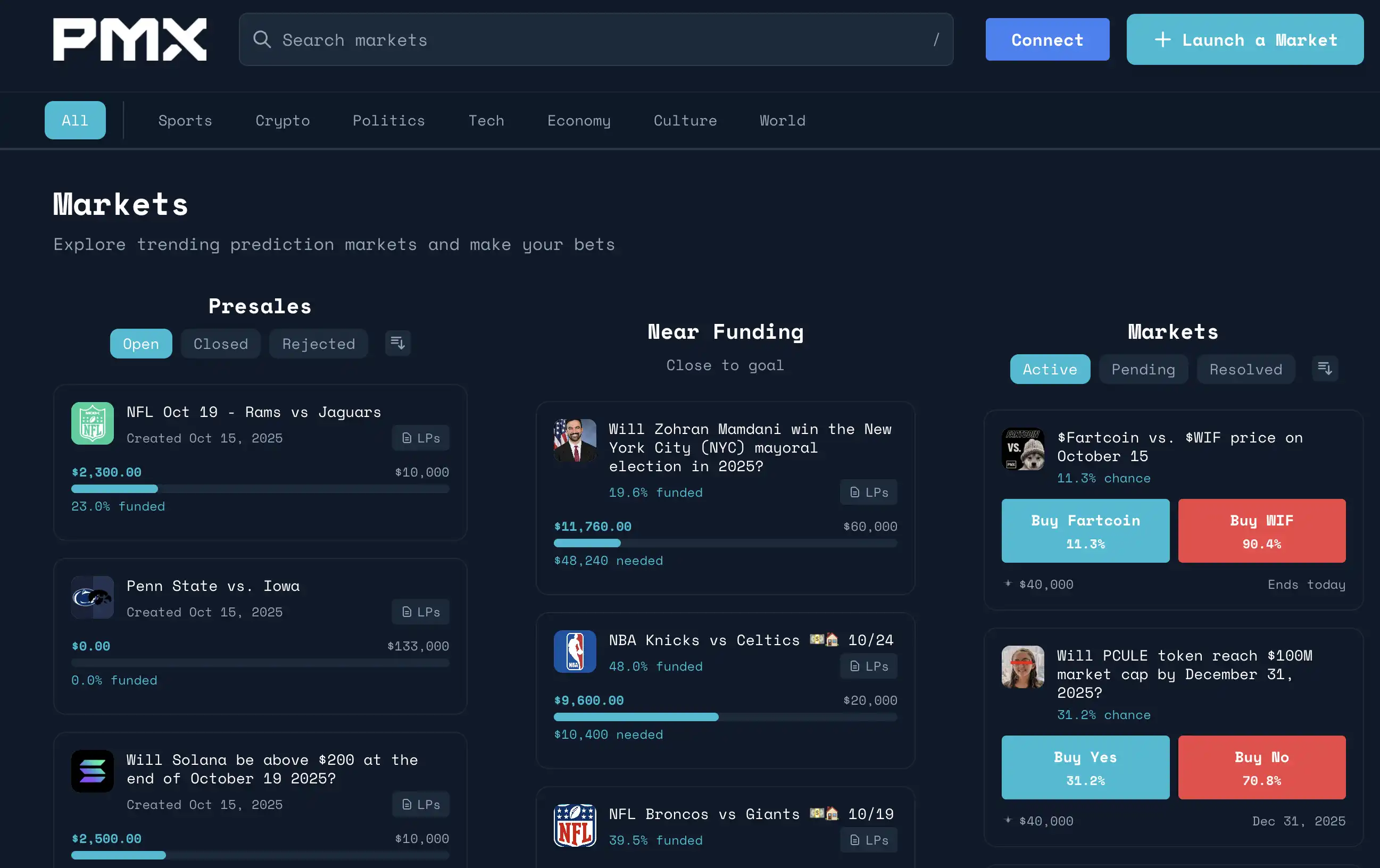
As it transitioned from a tool to a platform, its token PMX also saw its value soar, rising from $18 million to $57 million, and has now retraced to $23 million.
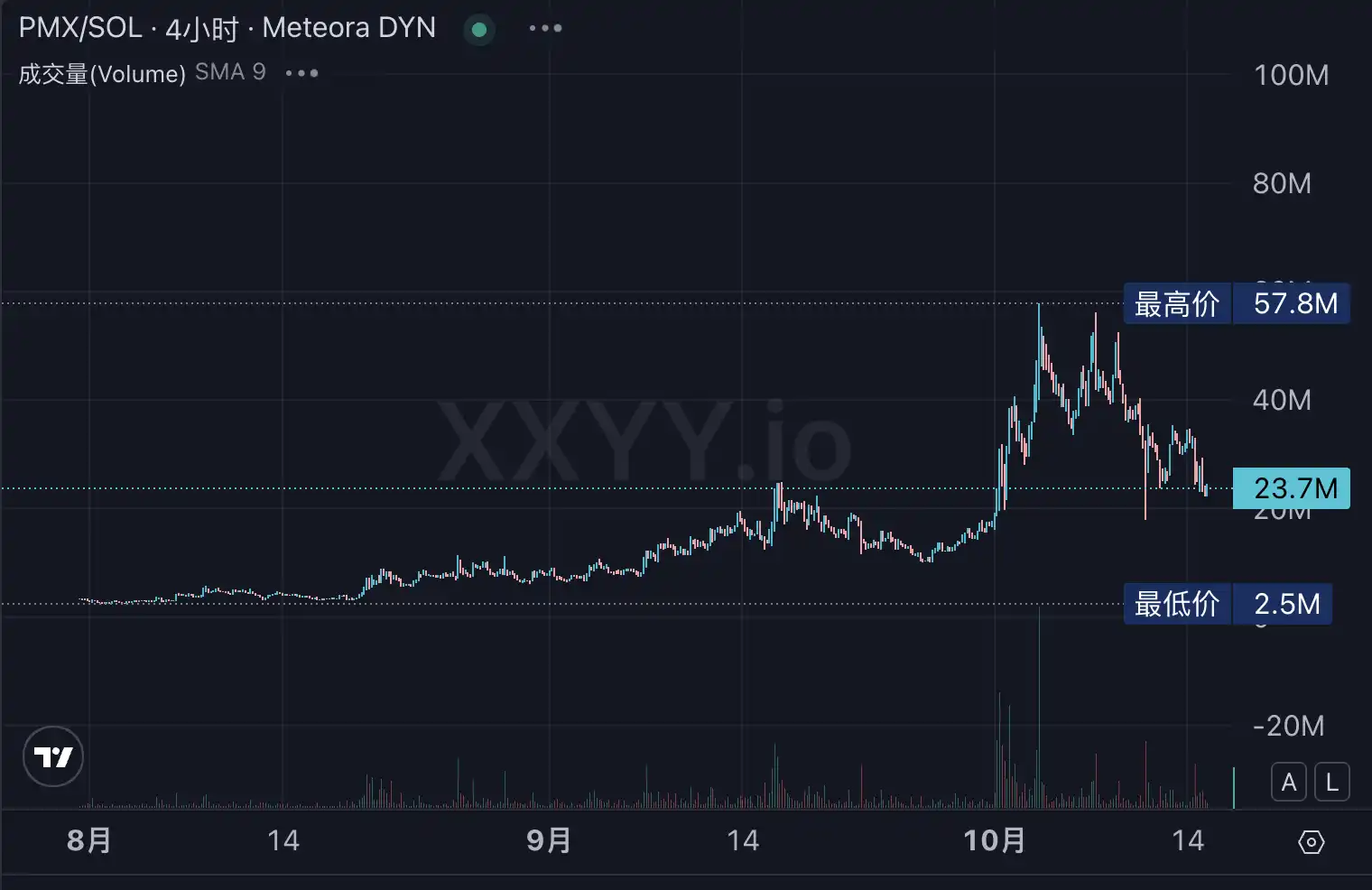
Polymtrade
Although Polymarket has become the largest prediction market platform by trading volume, it has long relied on the web version and has not launched an official mobile app. This has caused inconvenience for many deep users, as the experience on mobile browsers is not as smooth as that of native applications.
One user even complained in the community forum that they were "willing to spend hundreds of dollars" just to have a usable mobile application, highlighting the urgent demand for mobile access.
Polymtrade emerged as a third-party mobile trading terminal in this context. The project claims to be the first complete mobile trading application designed specifically for Polymarket, focusing on speed, ease of use, and a full suite of professional tools, aiming to redefine the trading experience for users on mobile devices.
Upon opening Polymtrade, users are greeted with a clean interface optimized for mobile and real-time updated market data. Due to targeted technical improvements, Polymtrade loads Polymarket data nearly four times faster than mobile web pages. Considering that many users prefer to reference data for betting, Polymtrade includes an AI prediction assistant, with the team training a model based on up to 55,000 settled historical market data points, providing probability predictions and trading suggestions for the current market.
For instance, when new news arises on a hot topic, the AI model may promptly adjust its win probability estimates for "yes/no" outcomes and alert users to potential betting opportunities. This intelligent assistance gives ordinary users a "prophetic" perspective to some extent.
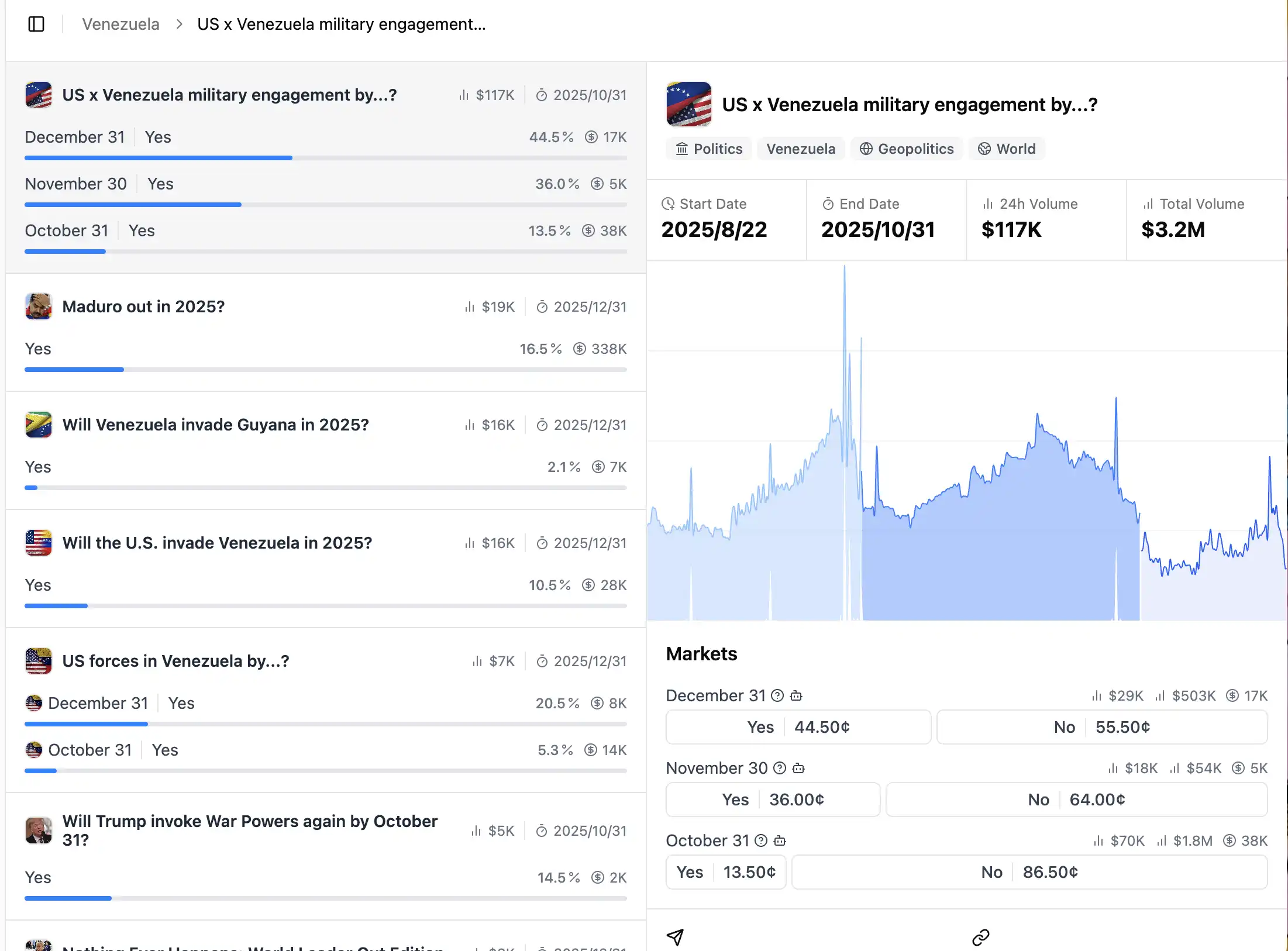
In terms of the trading process, Polymtrade has also made many optimizations to enhance convenience on mobile. Users can connect their crypto wallets and authorize transactions through signatures, ensuring that Polymtrade does not hold user funds throughout the process, maintaining a self-custody attribute.
Additionally, to reduce the costs of frequent trading, Polymtrade covers the Gas fees on the Polygon chain for users, effectively waiving all on-chain transaction fees. This is undoubtedly a boon for high-frequency traders, who no longer need to worry about being hesitant due to on-chain fees. At the same time, Polymtrade has streamlined the originally cumbersome betting steps into a one-click process, from selecting markets, entering amounts, to confirming transactions (in collaboration with ok.bet, transactions can be initiated directly from Telegram), all steps are packaged into a single submission action, significantly simplifying operations.
It also comes equipped with auxiliary tools; Polymtrade includes a search and monitoring dashboard, allowing users to quickly find markets by keywords or tags, subscribe to real-time news alerts, and view rankings of transaction fee income and trading volume across markets, making it easier to determine which areas are the hottest. For professional players, the application also provides community comments and strategy discussion sections.
The emergence of Polymtrade fills the long-standing mobile gap in Polymarket. For users accustomed to trading anytime and anywhere, it offers deep functionality comparable to desktop while simplifying it for mobile devices, allowing quick betting even during commutes.
Currently, its trading fees are used for user incentives and daily token buybacks, with 71 million $PM already burned.
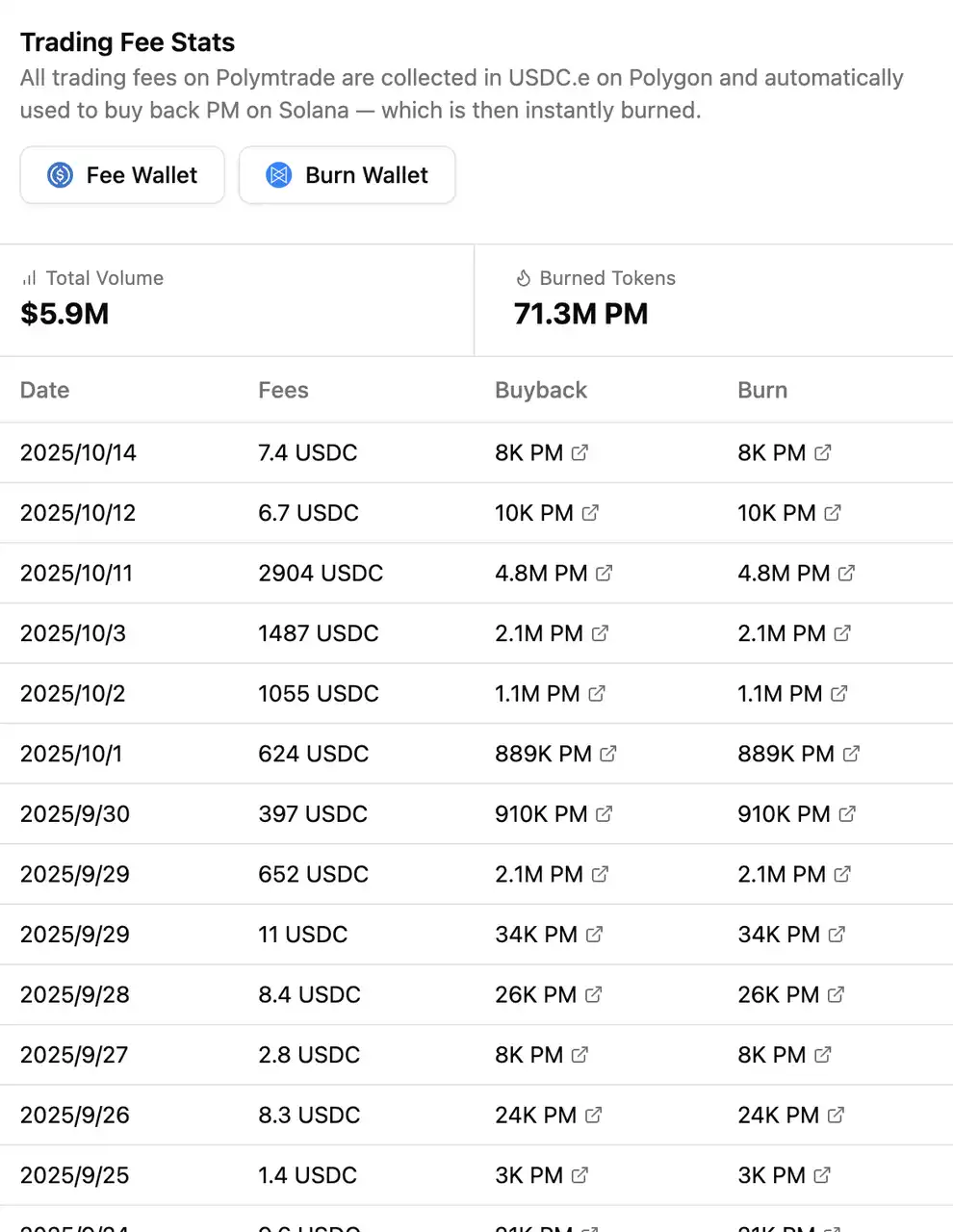
Currently, the market value of PM is only $800,000, but its price has risen relatively steadily due to the buyback mechanism. Whether the project can sustain itself will ultimately depend on whether its mobile functionality can sufficiently penetrate the market.
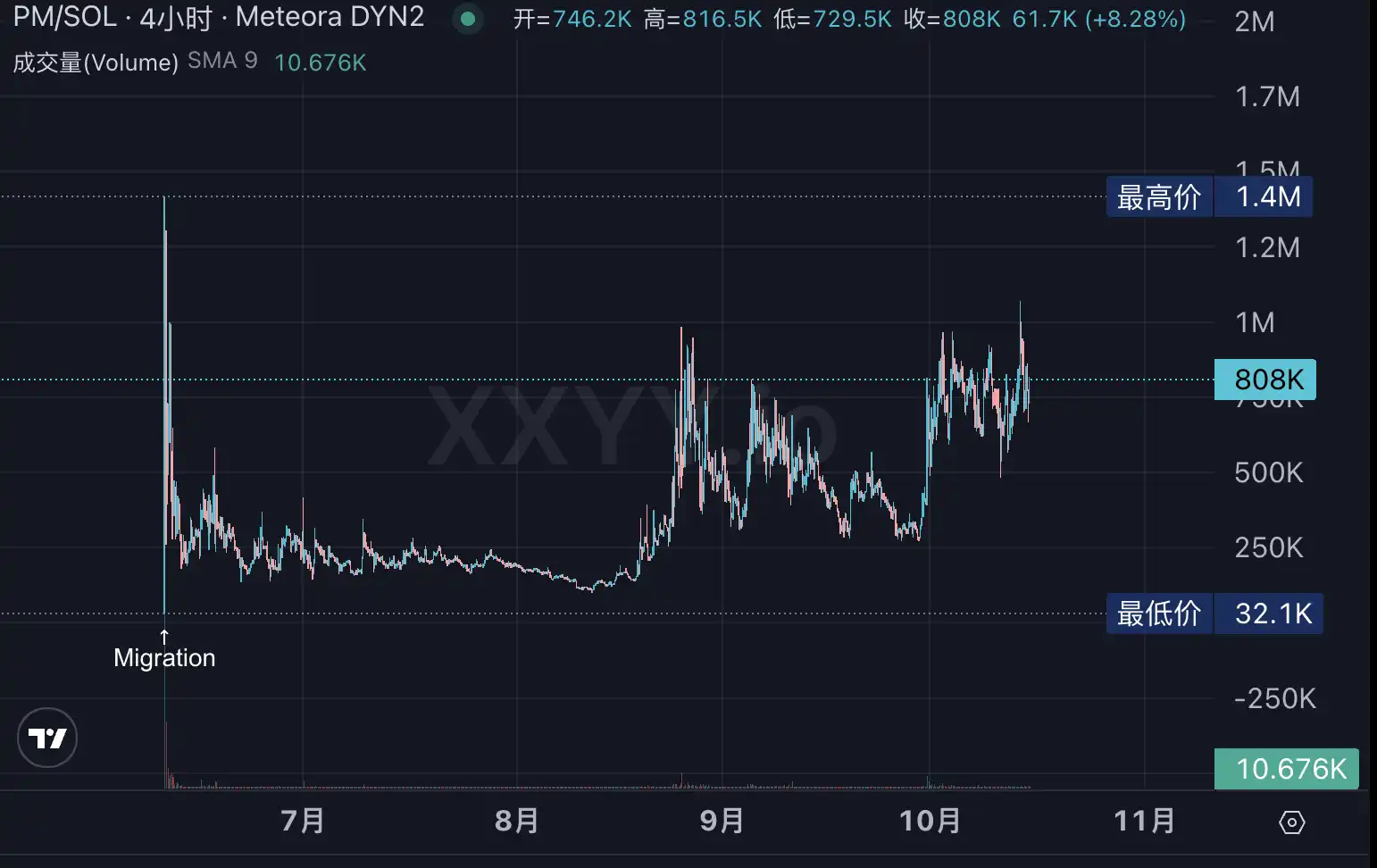
Flipr
The emergence of Flipr has pushed the gameplay of prediction markets to a new height. If Polycule embeds trading into chat software, Flipr integrates trading commands directly into social media dynamics, making every tweet a potential real bet. This new protocol, referred to by Messari as the "leverage layer of prediction markets," fully utilizes Polymarket's existing infrastructure while layering social and DeFi elements on top, making it truly unique.
Flipr has two core functions. First, it launched the trading bot @fliprbot based on X. Users simply need to post or reply to a tweet on X that includes a Polymarket market link and express their betting intention in natural language (for example, "@"fliprbot bet $50 YES" along with the market link and conditions), and Fliprbot will read this command and automatically execute the trade for the user in that market.
The entire process does not require opening any additional websites or applications, similar to the functionality of Base's BANKR, truly achieving "tweet to bet." When you scroll through Twitter and see a trending event, you can not only express your opinion but also place a bet effortlessly.
Another feature of Flipr is the introduction of a rare leverage function in prediction markets. Generally, betting on binary options platforms like Polymarket or Kalshi involves purchasing contracts at prices between $0 and $1, which pay out $1 at maturity based on the outcome, without any additional leverage. Flipr allows users to open positions with leverage of up to 10 times.
High leverage brings the potential for high returns but also comes with higher risks; even slight price fluctuations can lead to liquidation. Therefore, Flipr has also prepared stop-loss and take-profit features (contractualization of prediction markets). Additionally, it has designed DeFi modules such as lending and staking (not yet launched), which may allow users to use their held prediction contracts as collateral to borrow funds from the Flipr protocol in the future.
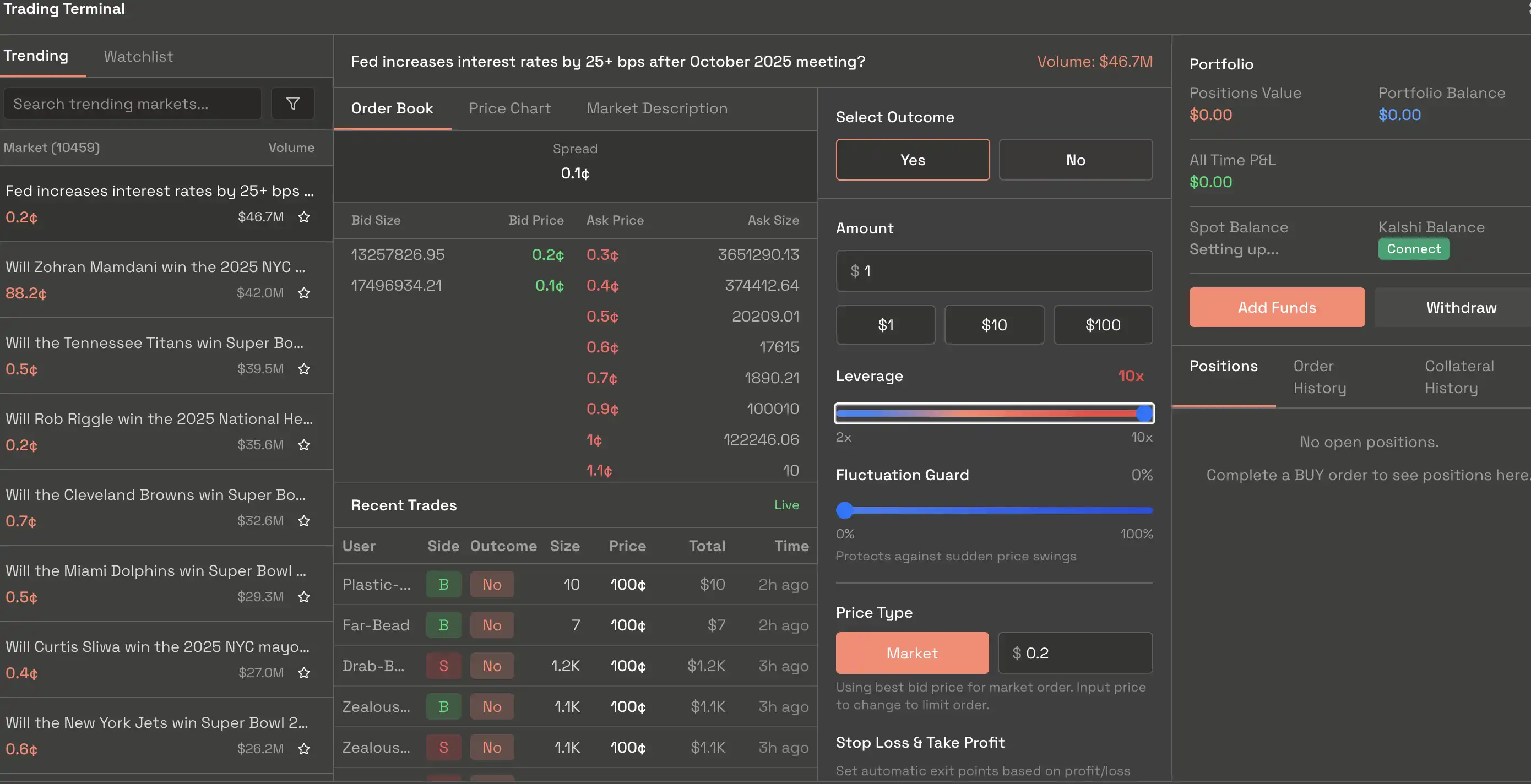
Since its launch in June, its token $FLIPR reached a peak market value of $30 million, but after the initial hype subsided, it has retraced to around $4.3 million.
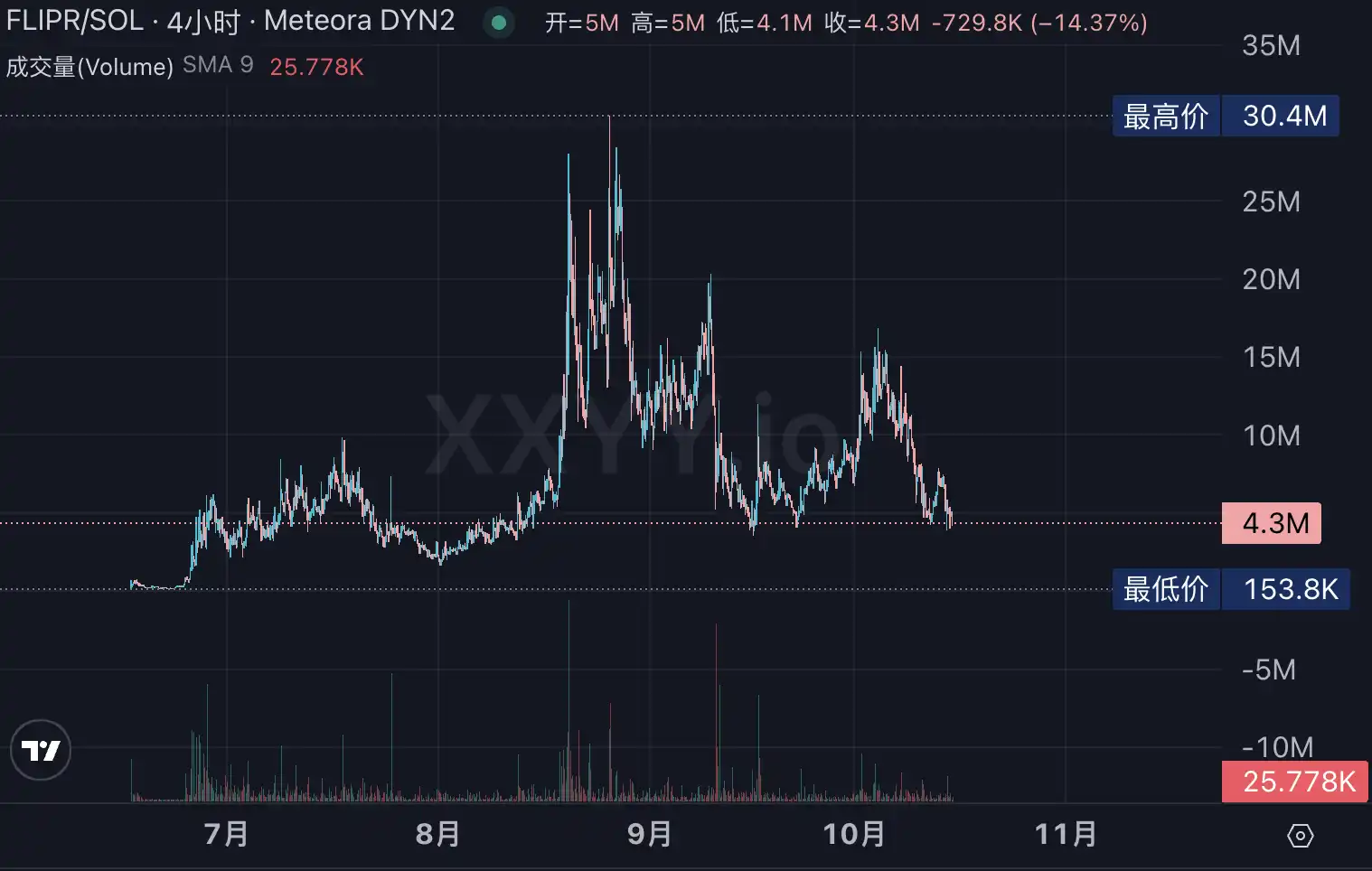
Currently, Flipr is still in its early stages, supporting markets primarily for highly liquid popular contracts, while niche markets have not been fully covered due to issues like slippage and liquidation mechanisms. However, if Flipr can effectively address funding and risk control issues while continuously providing a smooth social trading experience, it could become a relatively mature integrated platform for social prediction markets and DeFi functionalities.
Polyfactual
In the Polymarket ecosystem's Builders project, Polyfactual is an important component developed by community developers, just like Polytrader and Billy Bets. Polyfactual first emerged in the Polymarket community in 2023, coinciding with the surge in popularity of prediction markets and the emergence of various ecosystem projects. The Polyfactual team initially interacted with the community through X, Telegram, and YouTube channels, regularly live-streaming discussions on market trends.
In the second half of 2023, Polyfactual began to launch its product prototype. Early on, they analyzed popular topics on Polymarket in-depth through weekly live streams, accumulating a loyal user base. Subsequently, the team developed the first Chrome browser extension for Polymarket, enabling AI analysis to be directly integrated into the Polymarket platform interface.
In October 2023, Polyfactual launched an AI Chrome extension for analyzing prediction events on Polymarket. This extension allows traders to receive real-time AI interpretations and data insights about the market while browsing Polymarket's market pages, enhancing decision-making efficiency. This is an important step for Polyfactual in solidifying its tool attributes.
What sets Polyfactual apart is its deep integration of artificial intelligence, social sentiment, and prediction markets, creating a new paradigm called "Truth Markets." In simple terms, Polyfactual aims to make truth valuable through financial mechanisms, rendering the spread of rumors low-profit or even unprofitable. Its core operations can be divided into several major modules: fact verification, real-time intelligence push, cross-platform arbitrage, and "truth endorsement" tokens.
First is fact verification and intelligence analysis. The Polyfactual platform integrates vast amounts of information from news and social media (especially the X platform), using customized AI models for semantic analysis and credibility assessment. When a rumor begins to circulate in the community, Polyfactual's AI quickly assesses its source reliability and supporting data, providing feedback to users.
For example, if a rumor about a politician suddenly causes significant fluctuations in odds in a popular market, Polyfactual's real-time intelligence feed will immediately push analysis results to clarify the truth of the information, preventing users from being misled. Polyfactual acts as a "fact-checker" in the prediction market, ensuring that market pricing aligns more closely with reality by promptly identifying the authenticity of information.
To date, the Polyfactual official website has integrated an AI news feed that tracks developments in fields such as crypto, politics, and sports, filtering out key messages related to Polymarket markets. Users can browse the Live Feed on the website for news summaries or use the aforementioned browser extension to view AI interpretations in the sidebar of the Polymarket webpage.
In October of this year, Polyfactual announced the launch of a built-in AI market analyzer, "introducing AI market analysis functionality on-site. Users can paste any Polymarket link or ask questions, and the AI will instantly analyze market sentiment and risks. Each analysis requires burning 10 $POLYFACTS tokens."
This feature allows users to directly converse with Polyfactual's AI assistant to obtain in-depth analysis reports on specific markets (such as market bullish/bearish sentiment, reasons for odds fluctuations, etc.), but a small amount of tokens is required as a fee. Through this token consumption mechanism, Polyfactual integrates its tokens into product usage scenarios, incentivizing token holding while controlling the abuse of AI services.
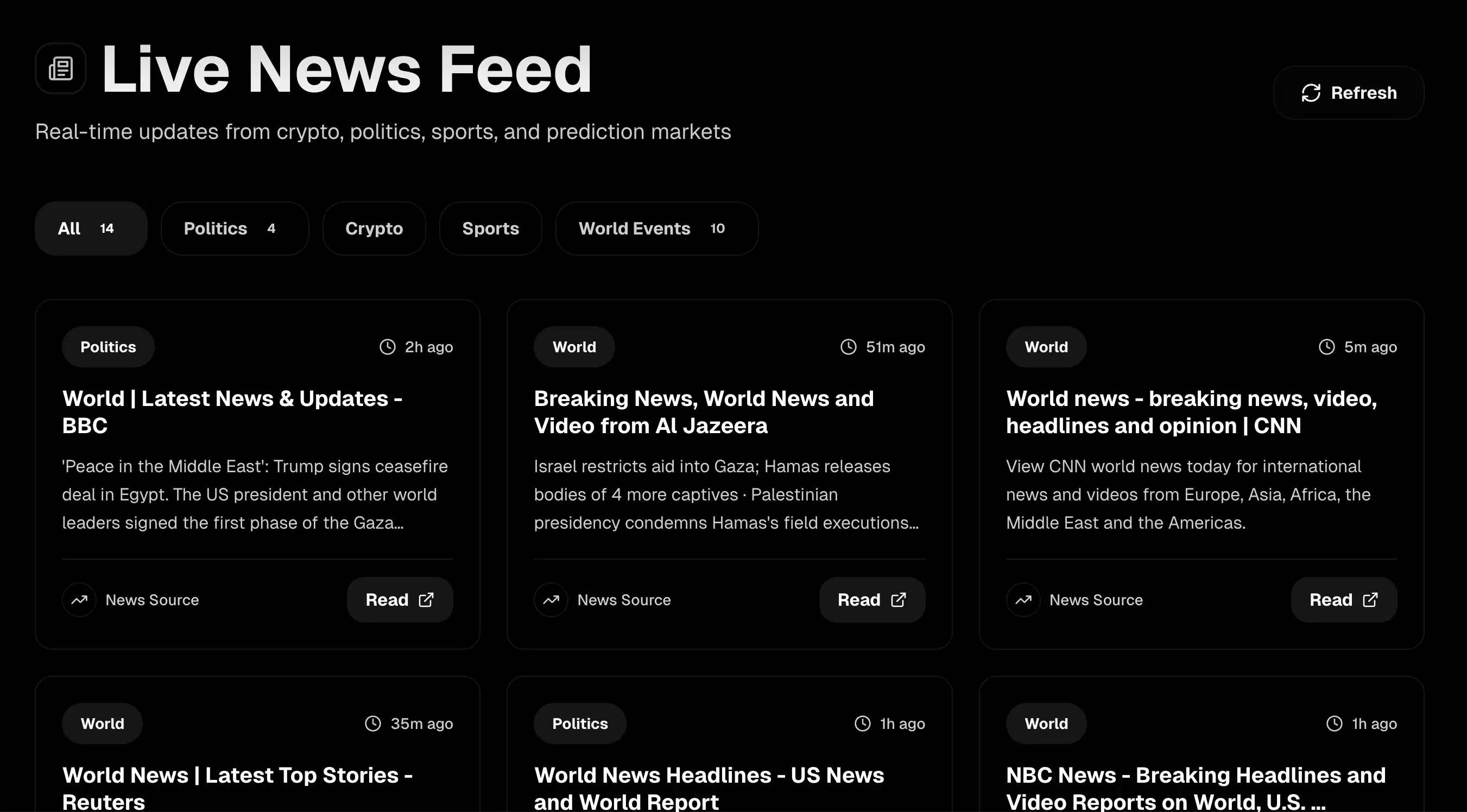
On the other hand, Polyfactual is exploring the "truth endorsement" token mechanism. In an interview on October 10 with MCG, Polyfactual's founder discussed this idea, aiming to directly convert the results of prediction markets into tradable tokens. Senior community observer fififish vividly described this concept as "what Polyfactual wants to do is launch tokens based on the final results through facts, which are the 'Yes' or 'No' on Polymarket."
For example, if an event has two possible outcomes, A or B, Polyfactual plans to prepare two tokens (such as Fact-A and Fact-B) in advance at the start of the event. If the final result is that A occurs, then the Fact-A token is officially issued and given value, while Fact-B becomes void; and vice versa. These tokens represent a form of "legitimacy" backed by real outcomes.
More importantly, this legitimacy is built on the consensus of market participants who have wagered real money. Therefore, holders of "truth tokens" essentially possess proof or rights to the actual outcomes that occurred. Polyfactual envisions that in the future, these truth tokens could circulate in secondary markets or be used for specific community governance, allowing the reliability of information to be measured by market prices. To this end, the team has begun developing a product similar to an "oracle" called Facts, which will officially launch on November 26.
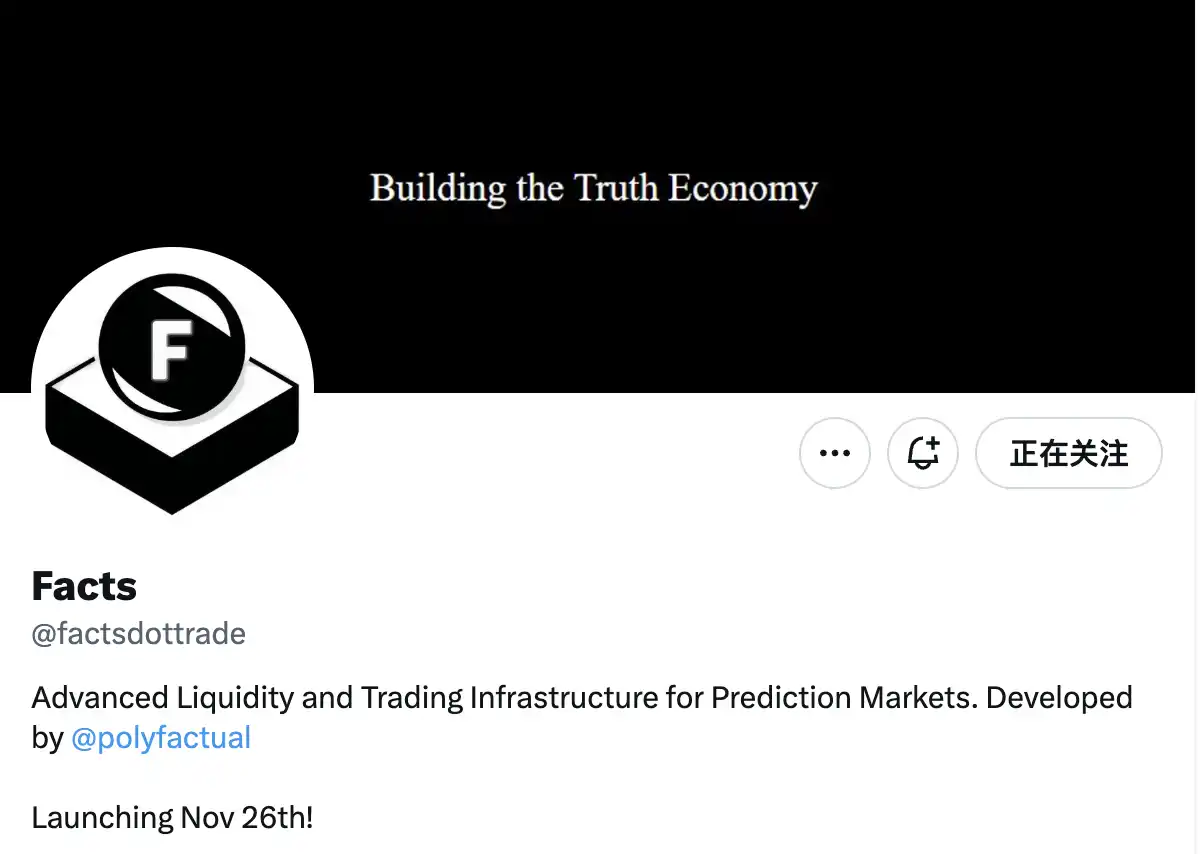
Additionally, this model could also give rise to cross-platform arbitrage bots, focusing on price differences between Polymarket and other platforms. A portion of the profits would be returned to POLYFACTS holders through token buybacks or dividends, allowing the community to share in the earnings.
After its launch, the official token POLYFACT experienced a brief surge in market value to $19 million due to a misunderstanding that it was acquired after being labeled as an "affiliated token" by POLYMARKET. Following this, its market value fluctuated around $4 to $6 million.
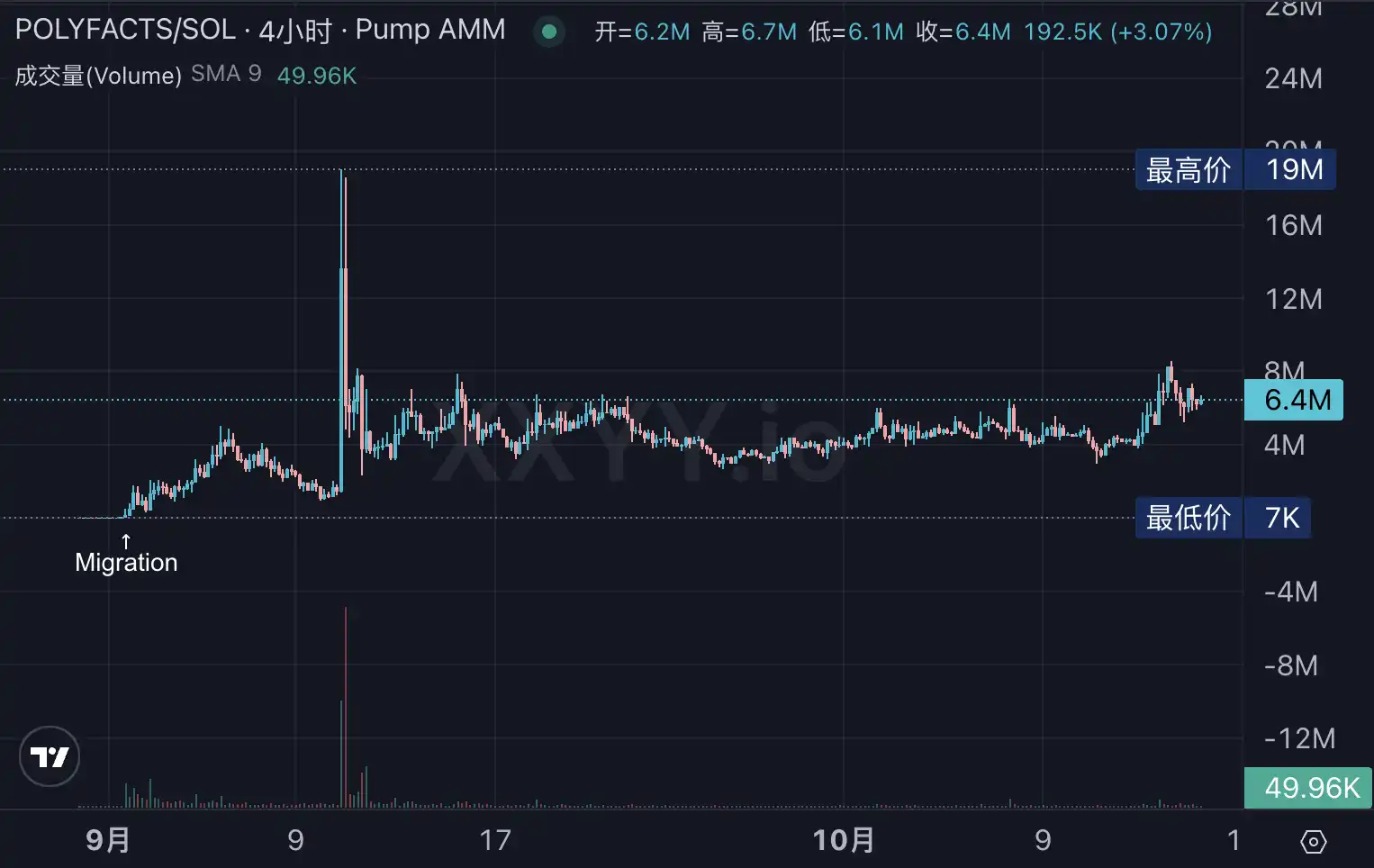
免责声明:本文章仅代表作者个人观点,不代表本平台的立场和观点。本文章仅供信息分享,不构成对任何人的任何投资建议。用户与作者之间的任何争议,与本平台无关。如网页中刊载的文章或图片涉及侵权,请提供相关的权利证明和身份证明发送邮件到support@aicoin.com,本平台相关工作人员将会进行核查。


